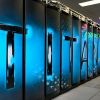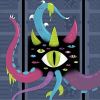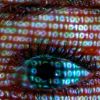-
 +13 +5
+13 +5Microsoft and Canonical partner to bring Ubuntu to Windows 10
You'll soon be able to run Ubuntu on Windows 10.
-
 +17 +4
+17 +4Physicists demonstrate a quantum Fredkin gate
Researchers from Griffith University and the University of Queensland have overcome one of the key challenges to quantum computing by simplifying a complex quantum logic operation. They demonstrated this by experimentally realising a challenging circuit—the quantum Fredkin gate—for the first time.
-
 +32 +8
+32 +8CGA Graphics - Not as bad as you thought!
In this episode I cover the IBM CGA graphics system from 1981.
1 comments by bradd -
 +1 +1
+1 +1These unlucky people have names that break computers
Jennifer Null’s husband had warned her before they got married that taking his name could lead to occasional frustrations in everyday life. She knew the sort of thing to expect – his family joked about it now and again, after all. And sure enough, right after the wedding, problems began. “We moved almost immediately after we got married so it came up practically as soon as I changed my name, buying plane tickets,” she says. When Jennifer Null tries to buy a plane ticket...
-
 +40 +7
+40 +7These unlucky people have names that break computers
An unlucky few have names that can utterly confuse computers, and it makes their life online quite the headache. Why does it happen?
-
 +4 +1
+4 +1UbuntuBSD Brings Ubuntu And FreeBSD Together
UbuntuBSD aims for 'Unix for human beings'.
-
 +1 +1
+1 +1To Test a Powerful Computer, Play an Ancient Game
Deep Blue's recent trouncing of Garry Kasparov sent shock waves through the Western world. In much of the Orient, however, the news that a computer had beaten a chess champion was likely to have been met with a yawn. While there are avid chess players in Japan, China, Korea and throughout the East, far more popular is the deceptively simple game of Go, in which black and white pieces called stones are used to form intricate...
-
 +32 +4
+32 +4In 1997 futurists figured it would take a century for machines to beat a human at Go
Deep Blue's recent trouncing of Garry Kasparov sent shock waves through the Western world. In much of the Orient, however, the news that a computer had beaten a chess champion was likely to have been met with a yawn. While there are avid chess players in Japan, China, Korea and throughout the East, far more popular is the deceptively simple game of Go, in which black and white pieces called stones are used to form intricate, interlocking patterns that sprawl across the board.
-
 +30 +2
+30 +2Machines Defeated Lee Sedol at Go and Me at Jeopardy! What Happens When They Defeat Us All?
On Saturday, the machines won again. At a luxury hotel in downtown Seoul, South Korea, a program developed by Google defeated Korean grandmaster Lee Sedol at the ancient Chinese board game of Go. It was Lee’s third consecutive defeat, guaranteeing victory for the AlphaGo software in the five-game, million-dollar match. Lee won a moral victory the following day when he forced AlphaGo to resign in Game 4, but it was too little, too late. On Tuesday...
-
 +24 +5
+24 +5Mind-Blowing Computer Simulation Recreates Our Universe
After 3 months of number-crunching, 8,000 computer processors working in parallel have recreated the evolution of our Universe in unprecedented detail.
-
 +7 +1
+7 +1Microsoft has crafted a switch OS on Debian Linux. Repeat, a switch OS on Debian Linux
Toolkit for wrangling networks released
-
 +12 +2
+12 +2Show them the world is watching. Stop DRM in HTML.
For years, Defective by Design and the anti-DRM movement have been fighting media and proprietary software companies who want to weave Digital Restrictions Management into the HTML
-
 +6 +2
+6 +2Buffer Overflow Attack - Computerphile
Making yourself the all-powerful "Root" super-user on a computer using a buffer overflow attack. Assistant Professor Dr Mike Pound details how it's done. Botnets: Coming Soon iPhone Encryption: Coming Soon 3D Stereo Vision: Brain Scanner:
-
 +40 +10
+40 +10Scientists Create Functional Model of a Living and Breathing Supercomputer
In what appears at first to be a storyline ripped from a sci-fi thriller, a multi-national research team spread across two continents, four countries, and ten years in the making have created a model of a supercomputer that runs on the same substance that living things use as an energy source.
-
 +38 +11
+38 +11Cryptography Pioneers Win Turing Award
n 1970, a Stanford artificial intelligence researcher named John McCarthy returned from a conference in Bordeaux, France, where he had presented a paper on the possibility of a “Home Information Terminal.” He predicted the terminal would be connected via the telephone network to a shared computer, which in turn would store files that would contain all books, magazines, newspapers, catalogs, airline schedules, public information and personal files.
-
 +30 +6
+30 +6The Trials of Aaron Swartz
A collection of Swartz’s writings is a record of a mind thinking, beautifully, against itself. By Ava Kofman. (Feb. 3)
-
 +31 +9
+31 +9How To Kill A Supercomputer: Dirty Power, Cosmic Rays, and Bad Solder
As a child, were you ever afraid that a monster lurking in your bedroom would leap out of the dark and get you? My job at Oak Ridge National Laboratory is to worry about a similar monster, hiding in the steel cabinets of the supercomputers and threatening to crash the largest computing machines on the planet. The monster is something supercomputer specialists call resilience—or rather the lack of resilience. It has bitten several supercomputers in the past.
-
 +40 +4
+40 +4German government to use Trojan spyware to monitor citizens
Intelligence agencies in Germany can now use malware to track computers of people under suspicion. The Trojan will be able to track user chats and conversations on smartphones and PCs.
-
 +41 +6
+41 +6What’s Next in Computing?
The computing industry progresses in two mostly independent cycles: financial and product cycles. There has been a lot of handwringing lately about where we are in the financial cycle. Financial markets get a lot of attention. They tend to fluctuate unpredictably and sometimes wildly. The product cycle by comparison gets relatively little attention, even though it is what actually drives the computing industry forward. We can try to understand and predict the product...
-
 +5 +2
+5 +2Solus Gets Linux Kernel 4.4.2 and Enhanced Security for Website to Protect ISOs
The Solus operating system and its team are taking extra security precautions in the light of the Linux Mint hack, and they are making sure that something like that will be much more unlikely to happen with their project.
Submit a link
Start a discussion




















